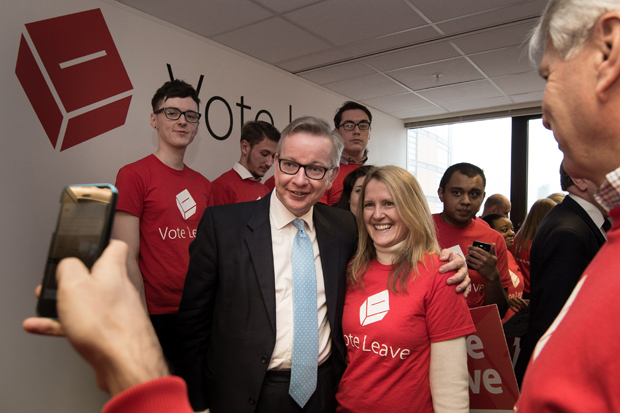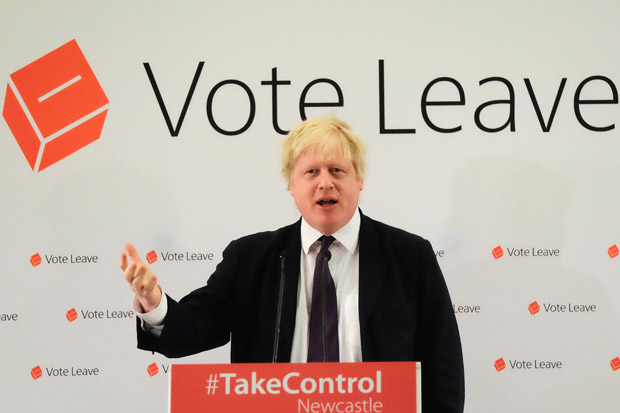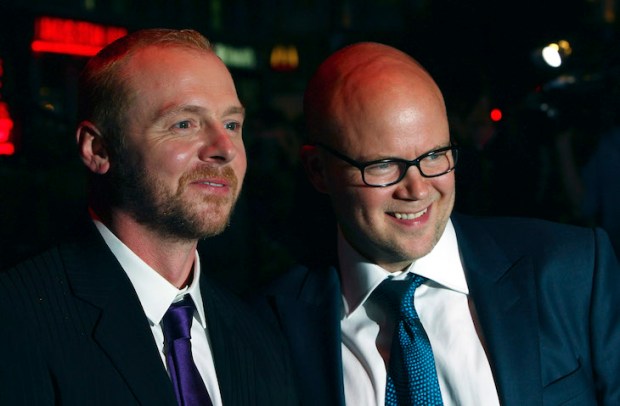I don’t remember the last European referendum being nearly as dramatic as the current one. In 1975, we were being asked about our membership of the Common Market, not the -European Union, so there was less at stake — at any rate, that’s what the inners -wanted us to believe. The battle was also much more one-sided. Then as now, the pro-European side included the Prime Minister and the leaders of the other two main parties, but there were fewer cabinet ministers on the other side and it was easier to -caricature the antis (Tony Benn, Enoch Powell) as extremists. In 1975, the national press was overwhelmingly in favour of staying in and the ‘yes’ campaign was able to outspend the ‘no’ campaign several times over, neither of which are true today. The result, in which 67 per cent voted to stay in, was a foregone conclusion.
Then again, I was only 11 at the time. Like most of my -contemporaries, I felt closer to the continent across the Atlantic than the one across the Channel. For me, this was the era of Lost in Space and The Six Million Dollar Man. Trends in popular culture seemed to blow across from America with the Gulf Stream and found eager followers among my friends and me.
The big new thing in the -summer of 1975 was skateboarding and I remember pulling apart one of my sister’s roller skates and nailing each half to a piece of wood. The first time I took this contraption out for a test drive I didn’t wear any shoes and when it fell apart, as it inevitably did, I almost severed my little toe.
America felt accessible and exciting, the sort of place I could imagine living when I was older, whereas Europe was strange and foreign. It felt further away, somehow, which was odd because my parents had a summer house in the south of France. Perhaps it was because we always drove there — a two-day journey in our Morris Marina, described by Top Gear as one of the worst cars of all time. Being cooped up in the back for the best part of 48 hours, with nothing to stave off the boredom, left me with a lifelong horror of long car journeys.
The French were -considerably more hostile to British visitors then than they are now. Our house was in a small village at the foot of the Luberon called Auribeau and we were the only English residents. There was a French boy called Frédéric of about my age who lived opposite, but we weren’t friends. On the contrary, we were constantly coming to blows. Our two homes shared an outside lavatory and whenever I had to use it, particularly at night, I was terrified that Frédéric was going to push a scorpion under the door.
I daresay that any Francophiles reading this will point out that relations between our two countries are much better now, thanks to our membership of the European Union. Back then, most Britons didn’t think of ourselves as being in Europe — the headline ‘Storm in Channel, Continent isolated’ made complete sense to me — but as an independent country, comparable in stature, if not greater, than the land mass just off our eastern and southern coasts. Our membership of other regional blocs — the British Isles, the Commonwealth, Nato — loomed larger in the national psyche. Today, that’s no longer true. The Anglosphere has receded into the background and Europe is pressed up against our borders.
Eurosceptics like me are often accused of nostalgia, as if that’s a terrible thing, but I think we’d benefit from feeling a little more exceptional, like we did in 1975. One of the aims of the European project is to blur national differences, to reduce the gravitational force of our separate histories, to pool our identities as well as our sovereignty. All this is justified, say the federalists, to avoid a repeat of the bloody conflicts that tore the Continent apart in the last century. But is it really such a binary choice? Must we water down our sense of national identity almost to the point of nothingness in order to preserve the peace between us?
This, above all, is why I’ll be voting ‘leave’ on 23 June. It’s not just the inevitable erosion of our parliamentary sovereignty that I fear, but the gradual ebbing away of everything that makes Britain different and special. I want my children to feel they’ve won the lottery of life, not because they have a European passport, but because they have a British one.
REFERENDUM 2016: THE BATTLE AHEAD
Join Isabel Hardman, James Forsyth and Fraser Nelson at the ICA, near Trafalgar Square, to discuss the campaign with Ben Page, pollster at Ipsos Mori. A subscriber-only event. To book, click here. To subscribe from £1/week, click here.
Got something to add? Join the discussion and comment below.
Get 10 issues for just $10
Subscribe to The Spectator Australia today for the next 10 magazine issues, plus full online access, for just $10.
Toby Young is associate editor of The Spectator.
You might disagree with half of it, but you’ll enjoy reading all of it. Try your first month for free, then just $2 a week for the remainder of your first year.
















Comments
Don't miss out
Join the conversation with other Spectator Australia readers. Subscribe to leave a comment.
SUBSCRIBEAlready a subscriber? Log in